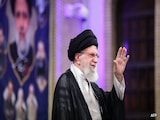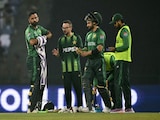US President Donald Trump is "frustrated" with the lack of progress on trade talks with India and feels that the 25 per cent tariff imposed on the country will "address and remedy" the situation, the White House economic adviser suggested on Wednesday.
National Economic Council Director Kevin Hassett indicated that Trump was upset over the way negotiations on the proposed bilateral trade deal were held.
The two sides held a series of negotiations on the trade deal but no concrete outcome emerged in view of certain contentious issues.
Trump on Wednesday announced the imposition of a 25 per cent tariff on all goods coming from India starting August 1, plus an unspecified penalty for buying Russian crude oil and military equipment.
The surprise announcement came a day after Indian officials said that a US trade team would visit from August 25 to negotiate a trade deal.
The announcement by Trump is being seen as a pressure tactic to get New Delhi to agree to demands made by the US, which has, in recent days, got favourable trade deals with major partners like Japan, the UK and the European Union.
Hassett said India has had a market that's been pretty much closed to American products while the US has been wide open to theirs.
He indicated that Trump was frustrated with the lack of progress that the US made with India, but "feels that a 25 per cent tariff will address and remedy the situation in a way that's good for the American people".
In a post on social media, Trump said that the US has a massive trade deficit with India and also criticised India for buying a "vast majority" of its military equipment and energy from Russia.
"Remember, while India is our friend, we have, over the years, done relatively little business with them because their Tariffs are far too high, among the highest in the World, and they have the most strenuous and obnoxious non-monetary Trade Barriers of any Country," Trump said.
"Also, they have always bought a vast majority of their military equipment from Russia, and are Russia's largest buyer of energy, along with China, at a time when everyone wants Russia to stop the killing in Ukraine — All things not Good!" he added.
"India will therefore be paying a tariff of 25 per cent, plus a penalty for the above, starting on August 1st," Trump said.
Hassett, responding to a question on India facing an additional charge for its purchase of Russian oil, said Trump and US Trade Representative Jamieson Greer will have more information on that "shortly".
On the 25 per cent tariff on India, Hassett added that "what's going to happen is that India is going to cut their prices to the US in order to maintain their market share".
"That's what everybody else has been doing, and then they might reconsider their practices, which have led to this higher rate. And over time, I would guess the Indian firms will be onshoring production in the US, and Indians might even open their markets more to us, so that we reconsider a future trade deal," he said.
On the tariff, Partner at The Asia Group Nisha Biswal said in a statement that the US is using "hardball tactics" when there is an ambitious deal already on the table.
"There were many reasons why the final deal seems to have faltered. One, President Trump wanted to retain a minimum 20 per cent baseline tariff on India; this was a non-starter for New Delhi," she said.
Biswal, who was Assistant Secretary for South and Central Asian Affairs at the Department of State from 2013 to 2017, added that Trump wanted US agricultural and dairy exports to India and New Delhi has gone as far as it can for now given domestic sensitivities.
Trump also wanted to directly negotiate with Prime Minister Narendra Modi since he felt that the deal did not go far enough, while New Delhi thought it had an expansive deal with the US Trade Representative and "didn't want Trump to reopen or renegotiate terms like Vietnam", she said.
"Trump is now exerting maximum pressure on India to get Modi's attention. PM Modi may want to examine what Japan, the EU and China did, all of whom have faced Trump's ire. Keep cool, retaliate if you must, but keep the channel open," Biswal said.
"Trump wants more than what his negotiators got, and India needs to be ready with what it will give him. While he is throwing everyone in the mix — defence, Russian oil etc. – he is looking for a deal and this is how he negotiates, friend or foe. The real tragedy would be if both sides walk away from a big win. And the implications for US businesses and India's economy could be quite severe," she added.
(Except for the headline, this story has not been edited by NDTV staff and is published from a syndicated feed.)















